Guiding Girls to Lofty Goals
May 29, 2014
You don't have to be a rocket scientist to know that Culver City is home to some pretty remarkable people, one being Judith Love Cohen, who is on the Astronautical Advisory Board for the USC Viterbi School of Engineering. As an electrical engineer she worked for aerospace companies on many high-profile NASA projects, including the Hubble Space Telescope and the Lunar Excursion Module.
Glass ceilings aren't safe around this woman, "Mine was made of concrete," she said. Thrusting a rocket through it and later authoring books for young girls to educate them about career choices, she became their engineer of change.
On May 3, in the presence of her family, Cohen's efforts were recognized by IEEE-USA at a regional meeting held at UCLA. She was also honored in absentia at the annual meeting in Rhode Island on May 17.
IEEE, the Institute of Electrical and Electronics Engineers, is the world's largest professional association dedicated to advancing technological innovation and excellence. Per Michael Andrews, the Region 6 Director who presented the plaque, "IEEE is a global organization encompassing over 160 countries."
The plaque reads as follows: "IEEE-USA Distinguished Literary Contributions Award For Furthering the Advancement and Public Understanding of the Engineering Profession is presented to Judith Love Cohen for a lifetime of dedication to journalistic STEM education for young women."
STEM, referring to the academic disciplines of science, technology, engineering and mathematics, addresses education policies and curriculum choices from kindergarten through college that improve competitiveness in the development of technology.
The trajectory leading to Cohen's award was set in childhood by her father who, starting when she was eight, "taught me math and a love for it. He wanted to be an engineer but my grandfather needed him to work in his soda factory."
Undaunted by her high school guidance counselor who recommended she "find a nice finishing school" and "learn to be a lady," she won a state scholarship to Brooklyn College and attended for two years. Initially majoring in math which she planned to teach, she switched to engineering.
In her first summer job in 1951as secretary to the chief engineer, Cohen "was not allowed to work in the lab like the boys. It would be too distracting! California companies had had Rosie the Riveter during World War II so they were more into utilizing women."
And west she went, finding work as a junior engineer for North American Aviation while attending USC at night. It was 1952.
The reaction of her co-students, many of whom were returning Korean veterans, was less than positive: "'You should get married,' they would say. 'I am married,' I would reply. 'You should have a baby,' they would then say. 'I have two babies and my husband is looking after them. Can we do this experiment now?' I would reply."
After graduating in 1957 with a degree in electrical engineering Cohen joined Space Technology Laboratories, where she worked from 1959 to 1990. It later became TRW and is now Northrop Grumman.
During that time she returned to graduate school at USC, received her master's in electrical engineering and joined several professional societies. She is also a 1982 graduate of the UCLA Engineering Executive Program.
Cohen temporarily left TRW from 1970 to 1973 to work at Western Union on the Tracking Data Relay Satellite System. In 1990 she joined Command Systems Group to work on a new helicopter project. When it lost its contract in 1993, she started JLC Engineering and did consulting work.
Her career included technical challenges.
"On the Lunar Excursion Module (part of the Apollo project) we bid on the Alternative Guidance System, the backup system in case the main system had problems," she said. "The system was the first control system to be closed through a computer. The digital feedback was shaped like stair-steps and we had to learn how to keep that from being a problem.
"On the Hubble Space Telescope science operations ground system, our users were going to be astronomers and they complained that we were designing a system to be used by corporals in the Army. They wanted more control over the operation, not simple menus that we designed for them. We had to set up a department called 'User Engineering' where we would try to understand the unique needs of the end users for our products."
Cohen, pregnant at the time of the moon landing, recalled subsequent conversations with astronauts who told her that her work had saved their lives.
Five years before retiring she and husband David Katz, an accomplished artist, created Cascade Pass (www.cascadepass.com), producing books for elementary grades four to six.
"Our first book was 'You Can Be a Woman Engineer,'" Cohen said. "I co-wrote 24 books (17 career books, six environmental books and one on space program history). Our books have lesson plans in them and we created workshops for each book. My daughter-in-law, Robyn Friend, was a great help in writing because we got to the point where we were doing three books a year."
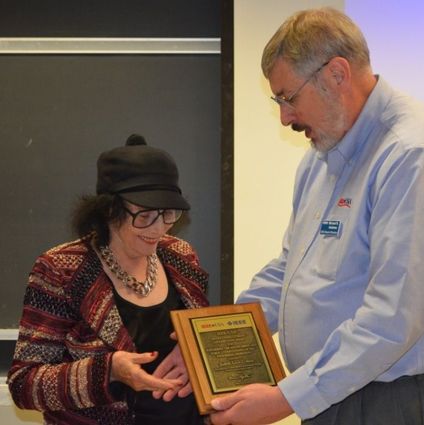
Judith Love Cohen being presented an award by Michael Andrews, IEEE-USA Region 6 Director, from the Institute of Electrical and Electronic Engineers in May.
Books planned in the coming year involve engineering for the future and are not solely female-directed. "We are also looking into doing more environmental books about wind power or electric vehicles, for example," she added.
It's noteworthy that after Cohen's acceptance of the award, many women, including Nathalie Gosset of USC, the prestigious featured speaker whose intriguing presentation involved emerging opportunities, told her that what she did in the '50s and '60s helped pave the way for their acceptance into the world of engineering. Even after leaving the meeting Cohen was stopped in the hallway and engaged in conversation by a female student who thanked her profusely "for being such a good role model."
"Role model" aptly describes this space pioneer, truly a visionary and game changer not only for her contributions in aerospace but for her many books encouraging young girls to extend their reach, explore unconventional paths, build confidence and have a future that embodies "all systems go."

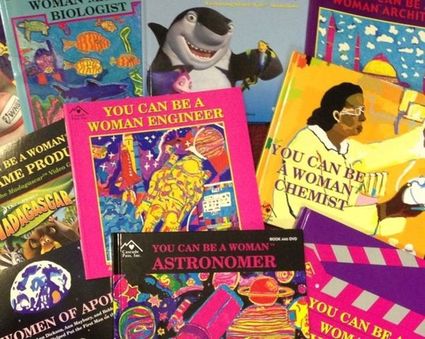







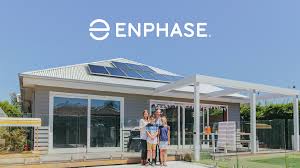


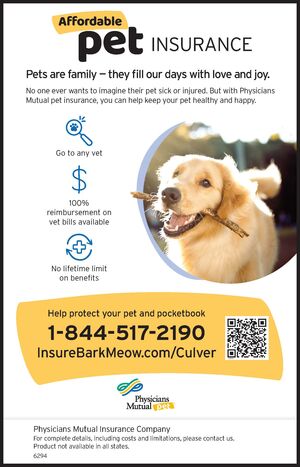
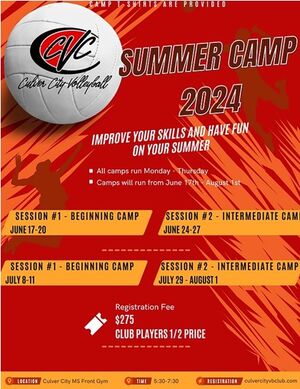


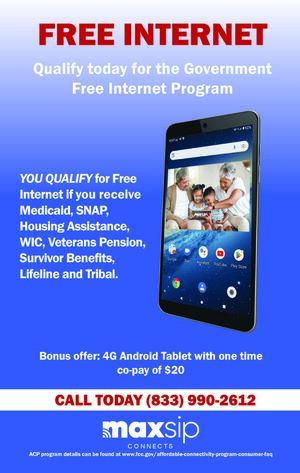



Reader Comments(1)
Karinjoy writes:
Another wonderful article by Sandra, about an amazingly brilliant and awe-inspiring woman, who was a mother and wife at the same time! I love to read Sandra's articles, they are always up-lifting!
06/02/2014, 8:29 pm